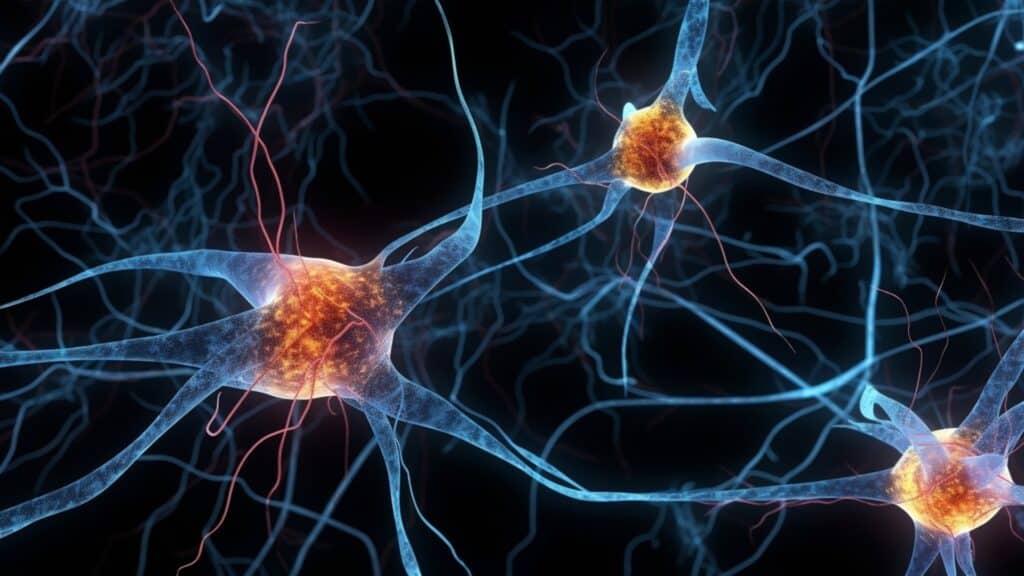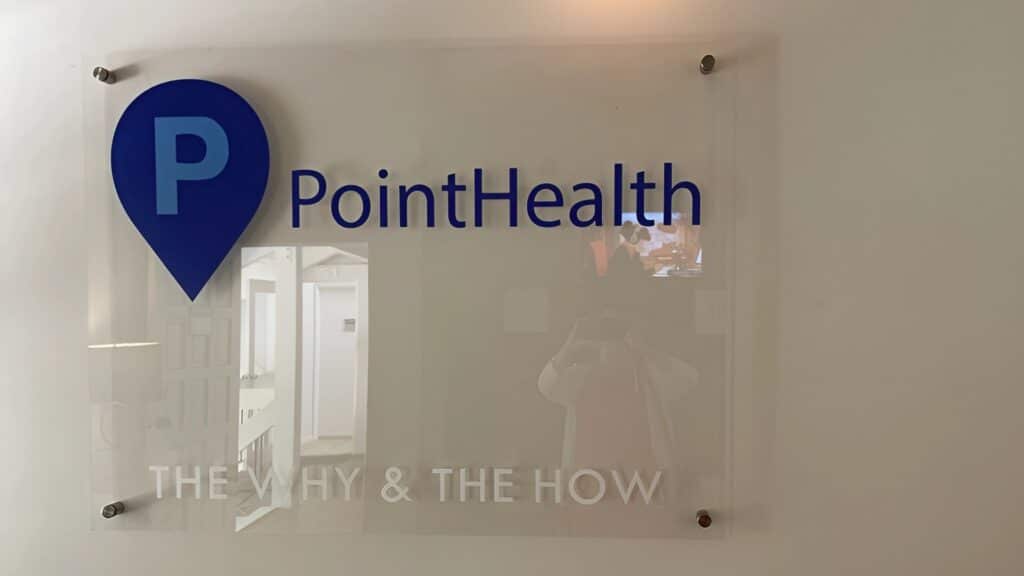
Post-traumatic stress disorder (PTSD) affects millions of individuals, including military veterans, survivors of abuse, and those who have experienced life-altering traumatic events. For many, traditional treatments such as cognitive behavioral therapy (CBT) or exposure therapy provide some relief, but others with treatment-resistant PTSD continue to struggle with chronic PTSD symptoms.
PointHealth offers a groundbreaking solution by combining ketamine therapy and transcranial magnetic stimulation (TMS) to deliver better outcomes for individuals suffering from PTSD. This combination not only helps in treating PTSD but also alleviates chronic pain, showcasing the versatility of these therapies in addressing both physical and psychological symptoms.
This article explores “how do ketamine and TMS work together to treat PTSD”, the science behind this combination therapy, and what makes PointHealth’s approach unique in helping patients achieve significant improvements in their mental health.
Understanding PTSD and Its Challenges
Post-traumatic stress disorder (PTSD) is a debilitating mental health condition triggered by experiencing or witnessing traumatic events. Common PTSD symptoms include flashbacks, anxiety, intrusive traumatic memories, and emotional numbness. For many, these symptoms persist long after the event, affecting relationships, work, and overall quality of life.
Why Traditional Treatments May Not Be Enough
Conventional therapies like cognitive behavioral therapy and exposure therapy focus on processing traumatic memories and reducing distress. However, for individuals with severe PTSD or treatment-resistant depression, these approaches may not fully address the underlying neurological changes caused by trauma. This is where innovative treatments like ketamine infusion therapy and TMS treatment can make a difference. Individuals with severe PTSD or major depressive disorder may benefit from these advanced treatment options.
How Do Ketamine and TMS Work Together to Treat PTSD?
The Role of Ketamine in PTSD Treatment
Ketamine, originally developed as a dissociative anesthetic, has gained FDA approval for mental health applications. It works by targeting the brain’s glutamate system, enhancing glutamate transmission, and promoting neural plasticity—the brain’s ability to form new connections. When administered intravenously during ketamine infusion therapy, it can quickly alleviate symptoms of PTSD by reducing the intensity of traumatic memories and improving mood.
The Role of TMS in PTSD Treatment
Transcranial magnetic stimulation (TMS) is a non-invasive therapy that uses magnetic pulses to stimulate the prefrontal cortex, the area of the brain responsible for regulating emotions and decision-making. This targeted stimulation improves neural activity, leading to reduced anxiety and depression symptoms. TMS has shown promise in treating depression and other mental health conditions, making it a valuable tool for individuals with traumatic stress disorder PTSD.
The Synergistic Effect of Combining Ketamine and TMS
When used together, ketamine and TMS therapy create a synergistic effect that addresses both the emotional and neurological aspects of PTSD. Ketamine enhances neural plasticity, making the brain more receptive to the benefits of TMS.
Meanwhile, TMS strengthens cognitive function and reduces adverse effects often associated with PTSD. This combination allows for better outcomes compared to using either treatment alone.
Key Benefits of Combination Therapy for PTSD

Rapid Symptom Relief
Ketamine sessions provide fast-acting relief, often reducing symptoms within hours or days. For patients with chronic PTSD, this can be life-changing compared to the weeks or months required for traditional therapies.
Long-Term Improvements
By enhancing neural plasticity and regulating glutamate transmission, the combination of ketamine and TMS delivers lasting improvements in mood and cognitive function. Many patients report reduced symptoms for several weeksfollowing treatment.
Non-Invasive and Personalized Treatment Plans
PointHealth Clinic emphasizes safety and individual care. Both ketamine treatment and TMS are performed in a clinical setting under the supervision of experienced medical staff. Personalized treatment plans ensure that each patient’s unique needs are addressed.
Reducing Dependency on Medications
Traditional medications like antidepressants can take time to work and may cause adverse effects such as weight gain, blood pressure fluctuations, and fatigue. Combination therapy offers a more targeted approach with fewer long-term side effects.
Safety and Side Effects
Understanding Potential Risks
Ketamine infusion therapy, like any medical treatment, carries potential risks and side effects. While generally considered safe, it’s essential to be aware of the possible adverse effects to ensure a smooth and effective treatment experience. Common side effects of ketamine infusion therapy include:
Dissociation: A feeling of detachment from reality, which is usually temporary and resolves shortly after the infusion.
Nausea and Vomiting: Some patients may experience mild gastrointestinal discomfort.
Headache: A common but manageable side effect.
Dizziness or Lightheadedness: Often temporary and can be mitigated by resting post-infusion.
Increased Heart Rate and Blood Pressure: Typically monitored closely by healthcare providers.
Mild-to-Moderate Scalp Discomfort: This can occur during TMS treatment but is generally well-tolerated.
In rare cases, more severe side effects can occur, such as:
Seizures: Extremely rare, affecting less than 0.1% of patients.
Psychotic Episodes: Uncommon but possible, requiring immediate medical attention.
Increased Anxiety or Agitation: Some patients may experience heightened anxiety, which should be discussed with a healthcare provider.
It’s crucial to discuss your medical history, current health conditions, and any concerns with your healthcare provider before undergoing ketamine infusion therapy. They will help you weigh the potential benefits and risks and determine if this treatment is right for you.
Mitigating Side Effects
To minimize the risk of side effects, your healthcare provider will:
Conduct a Thorough Medical Evaluation: This ensures that ketamine infusion therapy is suitable for you.
Monitor Vital Signs: Continuous monitoring during the infusion helps manage any immediate adverse effects.
Adjust Dosage and Treatment Protocol: Tailoring the treatment to your specific needs can reduce the likelihood of side effects.
Provide a Safe and Comfortable Environment: Ensuring a supportive setting can help alleviate anxiety and discomfort.
Offer Guidance on Managing Side Effects: Providing tips and support for dealing with any side effects that may arise.
By being aware of the potential risks and taking steps to mitigate them, you can ensure a safe and effective treatment experience.
Enhancing Outcomes with Additional Therapies
Complementary Approaches
Ketamine infusion therapy can be even more effective when combined with other therapies. Some complementary approaches that may enhance treatment outcomes include:
Cognitive Behavioral Therapy (CBT): This type of talk therapy helps individuals change negative thought patterns and behaviors, making it a valuable addition to ketamine infusion therapy.
Mindfulness-Based Therapies: Practices such as meditation and mindfulness can promote relaxation, self-awareness, and emotional regulation, complementing the effects of ketamine.
Eye Movement Desensitization and Reprocessing (EMDR): This therapy helps process traumatic memories and reduce their distressing effects, working synergistically with ketamine to alleviate PTSD symptoms.
Medications: In some cases, medications like antidepressants or anti-anxiety medications may be prescribed to support treatment, providing a comprehensive approach to managing symptoms.
By incorporating these complementary approaches into your treatment plan, you may experience improved symptoms, increased emotional regulation, and enhanced overall well-being.
Personalized treatment plans are essential to ensure the best possible outcomes. Your healthcare provider will work with you to develop a tailored treatment plan that addresses your unique needs and goals. This holistic approach ensures that all aspects of your mental health are considered, leading to more effective and lasting results.
What to Expect During Treatment at PointHealth Clinic
Initial Consultation and Assessment
Before starting treatment, patients undergo a thorough physical examination and psychological assessment. This includes reviewing inclusion criteria and exclusion criteria to ensure the patient is a good candidate for combination therapy. Written informed consent is obtained to explain the potential risks and benefits.
Ketamine Infusion Therapy
Ketamine infusions are administered intravenously in a comfortable, monitored environment. During the session, patients may experience dissociative effects, such as a sense of detachment from their surroundings, which typically fade after the treatment. These sessions last about 40-60 minutes and are tailored to deliver low-dose ketamine for optimal benefits.
TMS Treatment
After the ketamine session, patients undergo TMS therapy, where a device applies magnetic pulses to the patient’s head, targeting the prefrontal cortex. The process is painless and lasts approximately 20-40 minutes. This step enhances the brain’s receptivity to treatment, amplifying the positive effects of ketamine.
Post-Treatment Monitoring and Follow-Up
Following each session, patients are closely monitored to evaluate their progress. Post-treatment follow-ups are essential to refine the treatment plan and ensure long-term health benefits. Many patients begin to notice significant improvements in their mood, sleep, and overall mental health within a few sessions.
Who Can Benefit from Combination Therapy?
Individuals with Treatment-Resistant Conditions
Combination therapy is ideal for those with treatment-resistant PTSD, treatment-resistant depression, or obsessive-compulsive disorder (OCD). Patients who have not responded to traditional treatments often find relief with this innovative approach.
Military Veterans and Trauma Survivors
Military veterans and individuals with histories of traumatic events often experience chronic PTSD. The combination of ketamine therapy and TMS provides a comprehensive solution that addresses both emotional and physical symptoms.
Patients Seeking a Non-Invasive Solution
For individuals looking to avoid invasive procedures or long-term reliance on medications, combination therapy offers a safe, effective alternative with minimal downtime.
The Science Behind Ketamine and TMS
Enhancing Neural Plasticity
Both ketamine and TMS promote neural plasticity, helping the brain form new connections. This is especially important for those with chronic PTSD, as it enables the brain to rewire itself and reduce the impact of traumatic memories.
Regulating Glutamate Transmission
Ketamine targets the brain’s glutamate system, which plays a key role in mood regulation and memory processing. By enhancing glutamate transmission, it alleviates depression and anxiety while making the brain more responsive to TMS.
Improving Cognitive Function
TMS directly stimulates the prefrontal cortex, improving decision-making, emotional regulation, and cognitive function. This helps patients regain control over their lives and reduces the likelihood of relapse.
Why PointHealth Clinic Is the Best Choice for PTSD Treatment

PointHealth Clinic is at the forefront of mental health innovation, combining advanced technology with compassionate care. Here’s why patients choose us:
Expertise and Safety
Our team of medical staff includes experts in ketamine infusion therapy and TMS treatment, ensuring that all procedures are performed safely and effectively.
Personalized Care
Every patient receives a personalized treatment plan tailored to their unique needs, ensuring the best possible results.
State-of-the-Art Facility
Our clinical setting is designed for comfort and safety, providing a supportive environment for patients undergoing combination therapy.
Commitment to Better Outcomes
At PointHealth Clinic, we’re dedicated to helping patients achieve significant improvements in their mental health and quality of life.
Final Thoughts on Combining Ketamine and TMS for PTSD
The combination of ketamine therapy and TMS treatment is revolutionizing the way we approach traumatic stress disorder and other mental health conditions. By addressing the neurological and emotional aspects of PTSD, this innovative treatment provides a lifeline for those who have struggled with previous treatments.
If you or someone you love is living with severe PTSD or treatment-resistant depression, PointHealth Clinic is here to help. Contact us today to learn more about our comprehensive approach to mental health and begin your journey to recovery.

